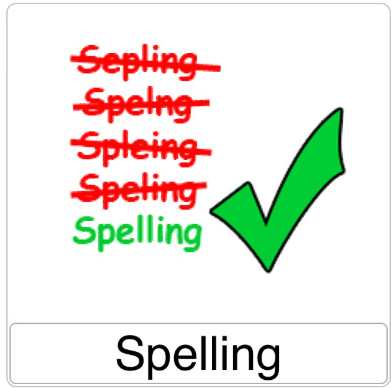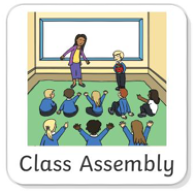Monday 24th March
Grammar Warm Up
LC: to identify a causal conjunction and its function in a sentence
Causal conjunctions are connecting words that explain the outcome/result of an action or event, adding more detail to a sentence.
They give a reason or explain why something happened.
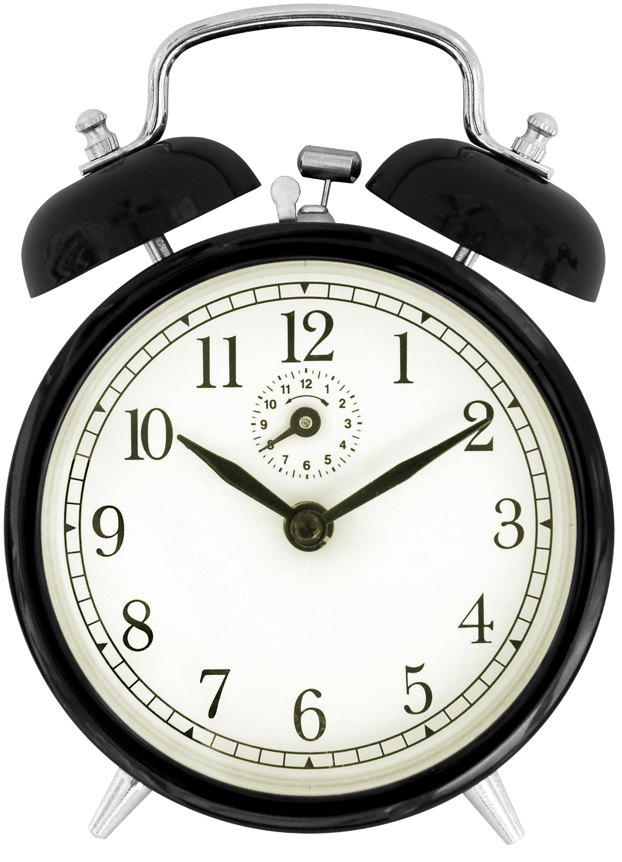
She was late for school because her alarm did not go off.
The word because shows the cause of her being late (because her alarm didn't go off).
The word because is a causal conjunction.
Example:
He is sad because the school holidays are nearly over.
Read these sentences and circle the causal conjunction.
1. I took my umbrella because it was raining.
2. I got into trouble at school. As a result, I wasn't allowed to go to my friend's party.
3. My cousin was ill so she missed the party.
4. The plant had now water or light, therefore it died.

LC: to recognise the features of writing to explain
Make notes as you watch then tell your talk partner:
What are the features of writing to explain?

Look at the explanation text below.
Find and label the features of an explanation text.
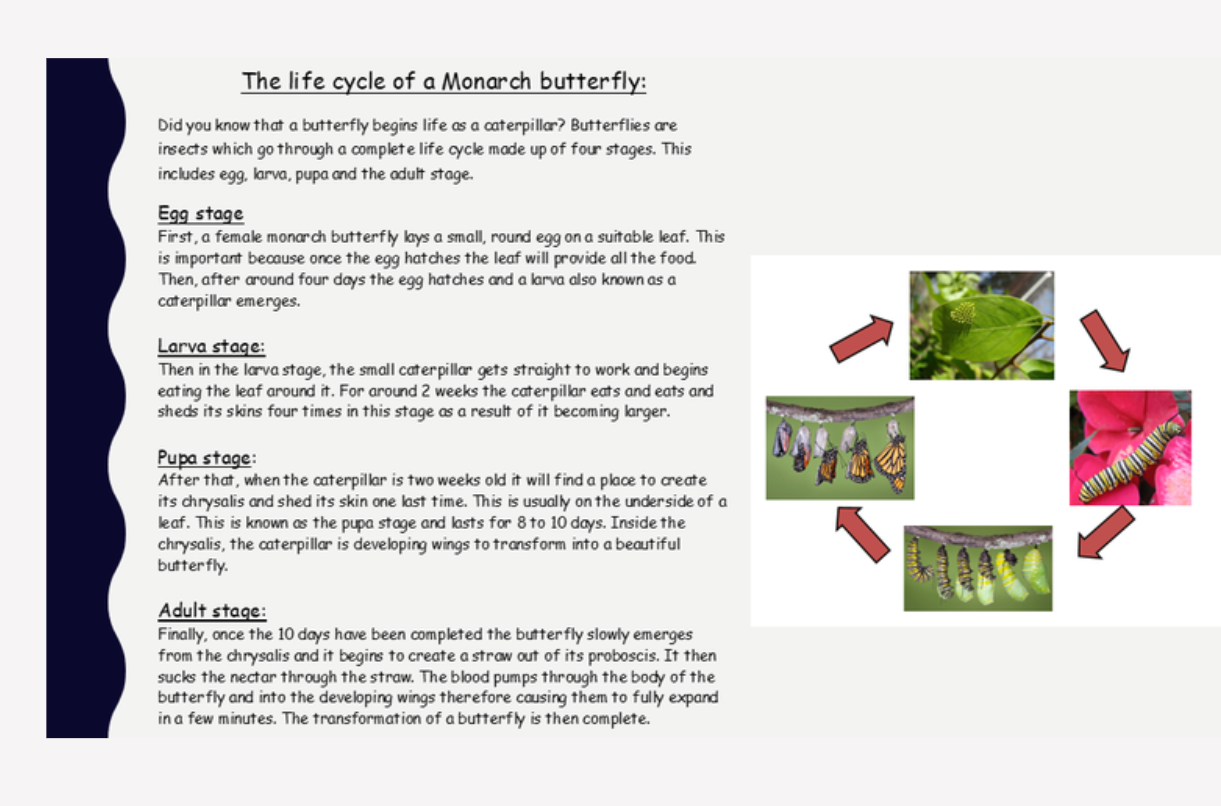
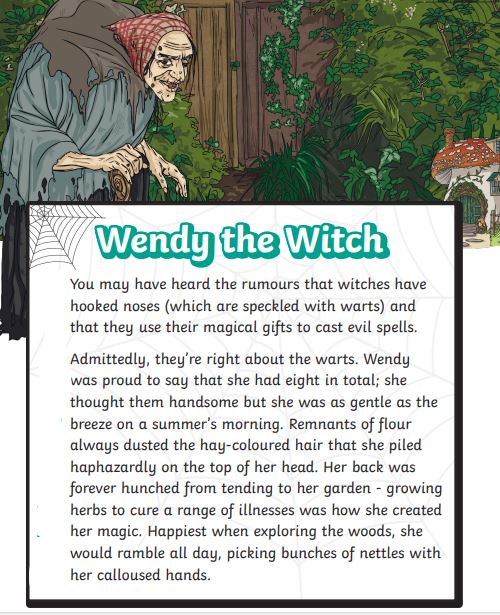 R
R I
I C
C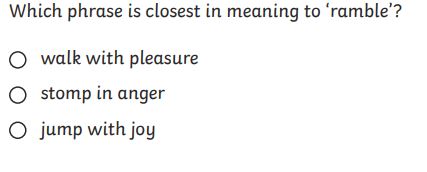 Monday 24th March 2025
Monday 24th March 2025
LC: Summarise main ideas drawn from more than one paragraph and identify key details which support this.
What are the main points of the story so far?
Now read Chapter 5 - The last chapter of the book.
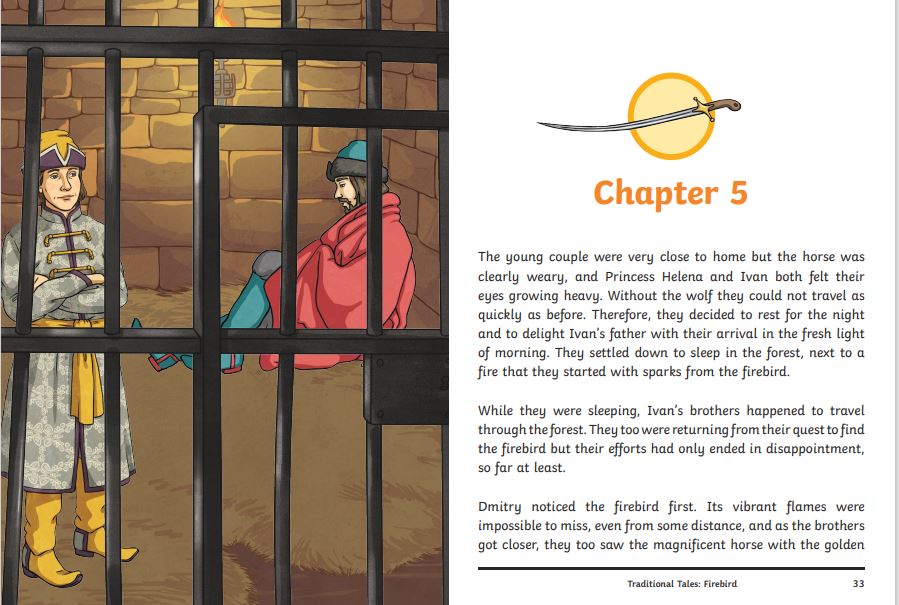
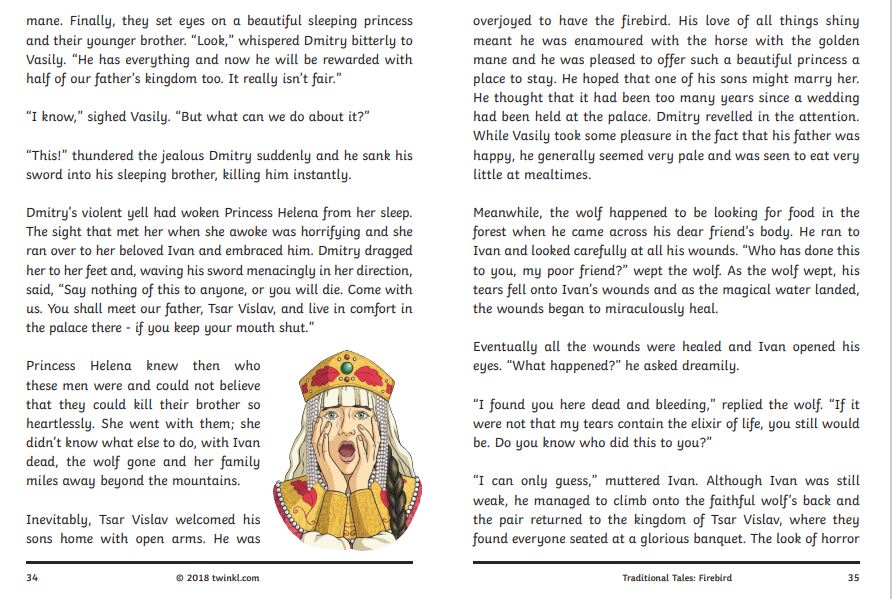
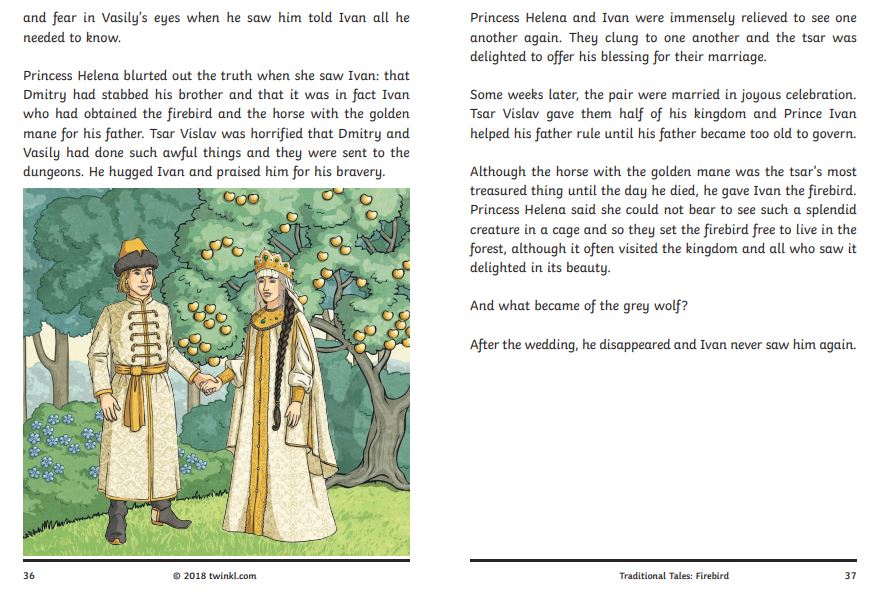
Can you remember what 'summarise' means?
How would we summarise the first paragraph of this chapter?
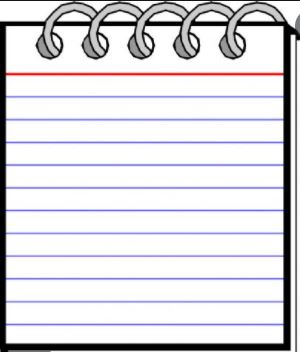
Re-read pages 35 to 37.
Write a summary of what happened in this chapter from the point the wolf reappeared to the end of the story.
Challenge: Read the first two pages of this chapter. Choose ten words and use them in sentences that summarise the whole story. Try to do this using just five sentences.
Monday 24th March 2025
Be able to choose the correct spelling of 'ie' or 'ei' when we hear an 'ee' sound in words.
When we hear an 'ee' sound in words it can be made with different vowel digraphs .
When ei or ie make an ee sound, the general rule is i before e except after c.
Choose the correct spelling in each pair of words:
ceiling cieling
peice piece
wierd weird
thief theif
sheild shield
recieve receive
acheive achieve
deceit deciet
chief cheif
concieve conceive
Can you think of any other words that this rule applies to?
Challenge:
Can you think of any words that are exceptions to this rule. Use a dictionary to check if you are correct!
World Poetry Day
On Friday it was World Poetry Day.
What is a poem?
A poem is a piece of writing that uses imaginative words to share ideas, emotions or a story with the reader.
A person who writes a poem is called a poet. Many poems have words or phrases that sound good together when they are read aloud.
Most poems for children rhyme or they have rhythm (just like music) or repetition. But a poem doesn’t have to rhyme!
People have been writing poetry for over 4,000 years, but they were probably making up verses to recite in front of audiences long before that.
In Ancient Greece, some poems were sung or performed with music – just like a song.
William Shakespeare, William Wordsworth, Christina Rossetti, John Keats, Robert Louis Stevenson and Emily Dickinson are all famous poets from history. Have you heard of them?
Modern children’s poets you might know include Michael Rosen Brian Moses Benjamin Zephaniah, Jackie Kay, Roger McGough, Allan Ahlberg, Roald Dahl, John Agard, Jack Prelutsky and Shel Silverstein.
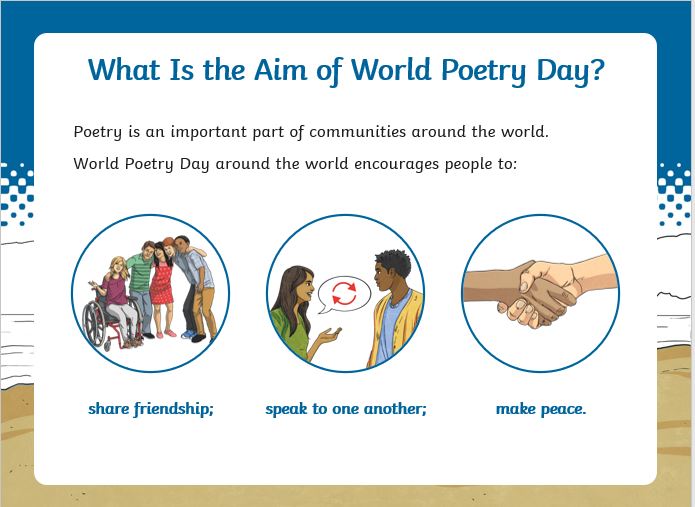
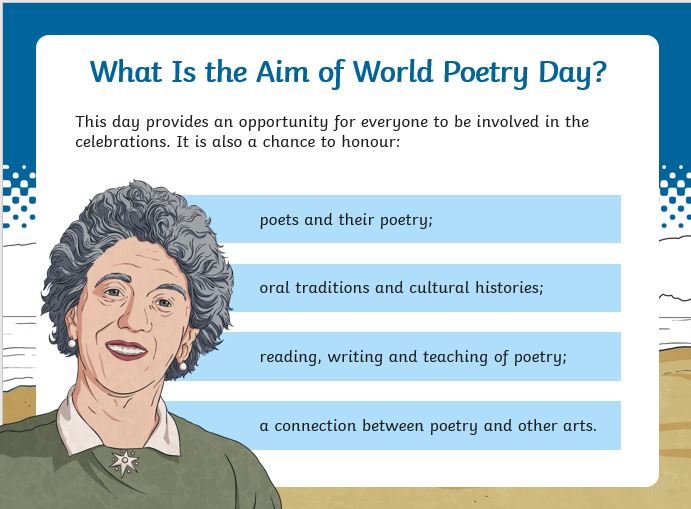
Do you have a favourite poem?
Tell your talk partner about it.
Poems, like other forms of writing, are composed to convey messages.
What message do you think this poem was written to convey
Leisure by W.H. Davies
What is this life if, full of care,
We have no time to stand and stare?
No time to stand beneath the boughs
And stare as long as sheep or cows:
No time to see, when woods we pass,
Where squirrels hide their nuts in grass:
No time to see, in broad daylight,
Streams full of stars, like skies at night:
No time to turn at Beauty's glance,
And watch her feet, how they can dance:
No time to wait till her mouth can
Enrich that smile her eyes began?
A poor life this if, full of care,
We have no time to stand and stare.
Let's think about and celebrate the contribution poets have made and continue to make to our understanding of the world and everything that lives in it.






